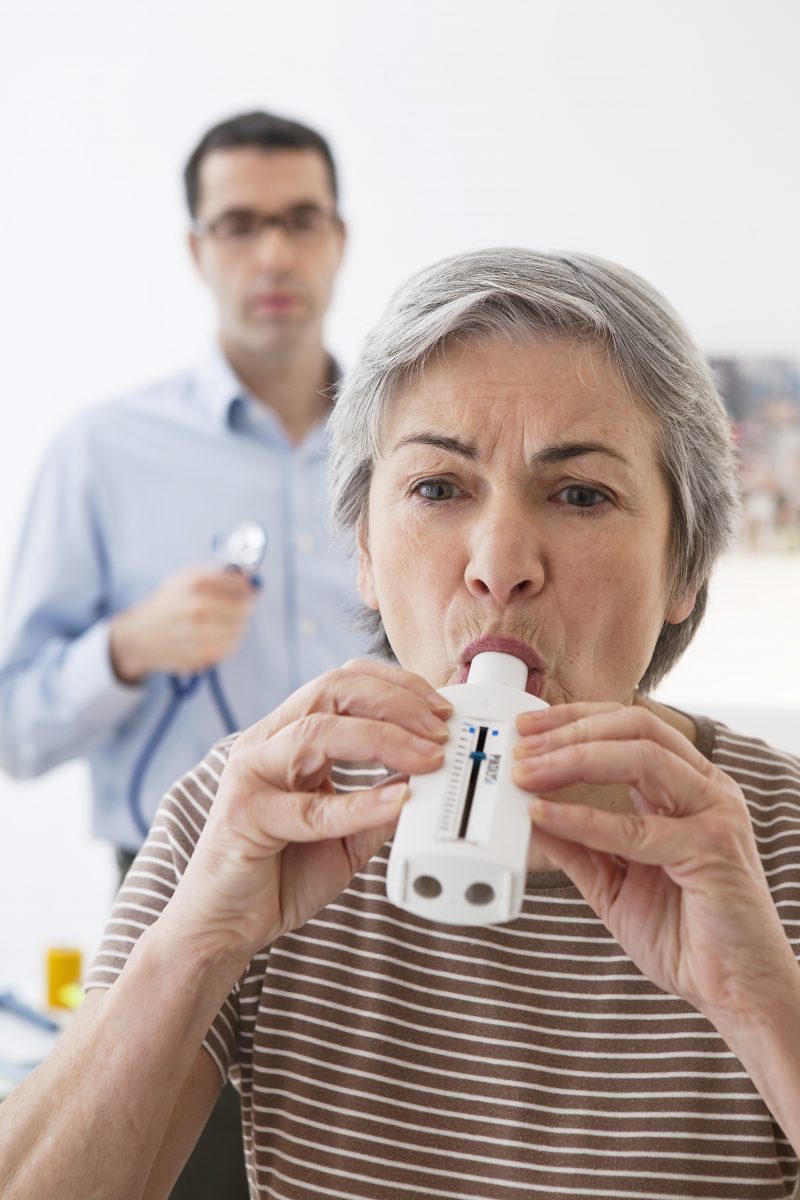Huntington’s Patient Breathing Could be Monitored, Aided in Middle Stage
Written by |

Monitoring respiratory function in Huntington’s disease (HD) from the middle stage of the disease may help prevent respiratory failure according to research. In addition, regular breathing exercises may improve the function of breathing muscles and cough effectiveness.
With respiratory dysfunction being one of the symptoms of HD and most HD related deaths occurring as a result of lung infections, monitoring and improving lung function early in the disease could have positive results.
The study “Respiratory decline is integral to disease progression in Huntington’s disease” was conducted by researcher at Cardiff University and published in the European Respiratory Journal.
The team led by Anne Rosser, professor of clinical neuroscience and honorary consultant neurologist at the University Hospital of Wales, recruited 67 participants who tested positive for the HD gene.
The participants were divided into two groups as pre-manifest (showing no motor abnormalities) or manifest (showing motor abnormalities). The researchers then compared the respiratory function of the two groups with healthy control volunteers.
They saw no difference in respiratory function between people with HD not yet showing motor abnormalities and the healthy control subjects. However, when they compared the respiratory function of the two groups with people who were showing motor abnormalities, they saw that the respiratory function of the latter was significantly decreased. The decrease in respiratory function significantly correlated with disease progression, with worse respiratory function in individuals who were at more advanced stages of the disease.
The researchers also saw that cough effectiveness was reduced from the middle stage of the disease onwards. This suggests that respiratory intervention may be necessary earlier in the disease progression than is typically considered and provided.
Twenty participants with motor abnormalities were then selected for further study. Ten of the participants were asked to use a device called POWERbreatheK3 for 30 breaths, twice a day, for six weeks, to train their breathing muscles. The other ten participants were also asked to use the device but with a “no added resistance” setting (the placebo group).
Even though there was no difference in respiratory function or cough effectiveness between the two groups of participants who completed the study, simply participating in the program resulted in a small improvement. The researchers concluded that regular breathing exercises could improve cough results and respiratory muscle strength in people with HD
According to the authors, further research is needed to identify the correct strategies to implement regular breathing exercises for people with HD.


